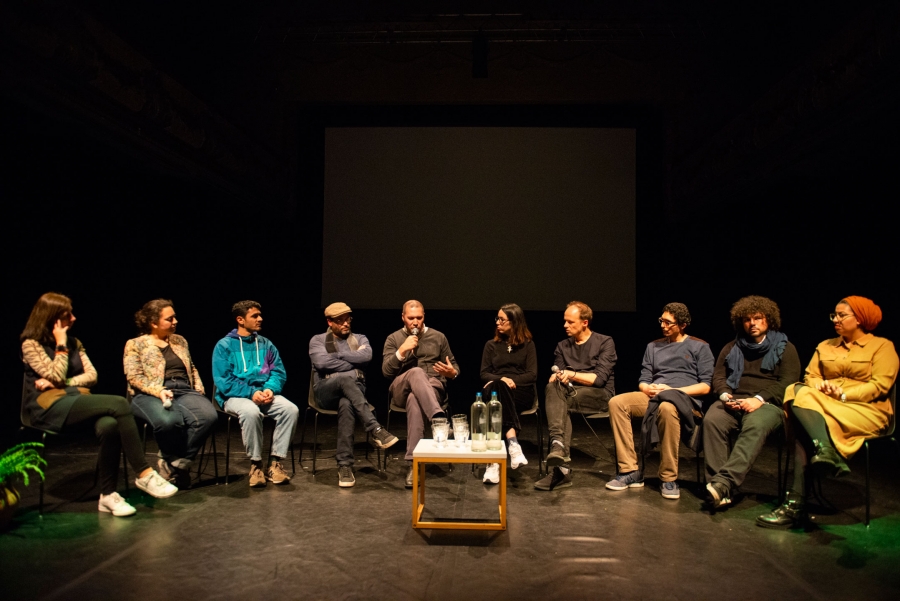the wasp and the weather - assembly & reflection
study circles
20.10.2019, Contour 9 Biennale: Coltan as Cotton, nona arts centre: study circle at the occasion of the première, with the participants of the film: M’Hamed El Ouali, Samira Saleh, Mathieu Charles, Abdelhay Ben Abdellah, Mirra Markhaeva, Elli Vassalou, Hooman Jalidi, Mohamed Tawfiq, Fatma Alomrani and Muhned Bnana.
27.2.2020, Z-Files #26, ‘t Klooster, Rotterdam, commissioned by Sculpture International Rotterdam, CBK Rotterdam and BKOR, curated by Maziar Afrassiabi: film screening and study circle with M’Hamed El Ouali, Norah Karrouche, Zaïre Krieger, Zoe Cocchia, Ibrahim Alaoui, Carina Fernandes and Demy Koetsier.
screenings / exhibitions
13-22.3.2020, Ciné du Réel 2020, Paris, online edition, international première
3-6.12.2020, Uncertainty, Fotomuseum Antwerpen - FOMU & Trigger, online festival
7.10.2021, Sint Lucas Antwerp, followed by Q&A with Zeynep Kubat (Part of Naively Radical Research Week, by SLARG (Sint Lucas Antwerpen Research Group) and Kunsthal Extra City)
18.11-4.12.2021, Videograms: Porosity Video Room, Sodas 2123, Vilnius, group exhibition
essays
On ‘In a World for All of Us!’, in TYPP #6 magazine (St Lucas School of Arts Antwerp, 2020) - M’Hamed El Ouali’s ‘In a world for all of us!’ is one of the five poems that make up the matter of the film the wasp and the weather (2019). By taking a closer look at El Ouali’s poem, I share some of the thoughts that are relevant to the conception of the film.
Repertoires of Recreation, in TRIGGER #2, the annually thematic book of FOMU Antwerp, 2020 - “There is a form of attention, of decentring and dissolution that must be learned, in order to preserve and elaborate on what’s already there but still often unheard, overlooked or unacknowledged – in order to see what is already gifted.”
Caring for Fugitive Imaginations. Co-elaborating with the Poetics of Care of Former Youth Centre Rzoezie, in FORUM+, Spring 2021, forthcoming - "When artistically co-elaborating with a social imagination as the one of Rzoezie, we attend to a poetics of care, but also to the processes of making power."
